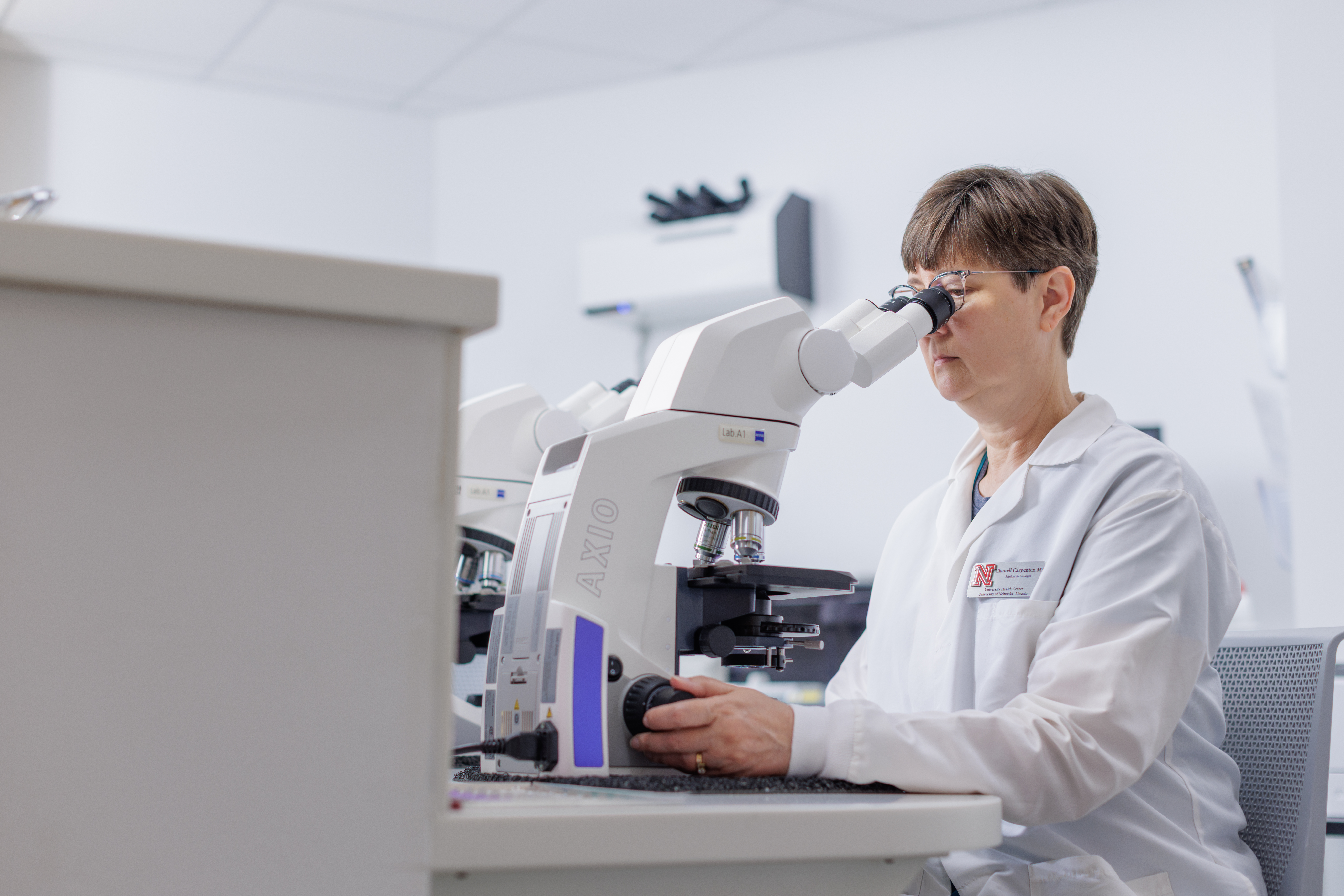
Hours of Service
Monday through Friday : 8 a.m. to 5 p.m.
Saturday: 9 a.m. to 12:30 p.m.
Sunday: Closed

Patient Eligibility
- University of Nebraska students from all campuses
- UNL, Nebraska Medicine and UNMC employees and their dependents who are 19 years or older (with outside order)
- Community members (with outside order)
- Visiting scholars

Services Covered By Student Fees
- Doctor-ordered chlamydia, gonorrhea and HIV screenings
- Doctor-ordered wellness profile
Appointments
We provide laboratory tests ordered by health center providers as well as those outside the health center. A doctor’s order is required for most tests. No appointment needed for lab tests with an existing order, walk in at your convenience during open clinic hours.
If you need a doctor’s order for a test, call 402-472-5000 and follow the prompts to speak with a nurse. In some cases, the nurse may need to schedule an appointment for you to speak with a provider to obtain a doctor’s order.
Cost
Doctor-ordered chlamydia/gonorrhea and HIV tests and doctor-ordered wellness profiles are covered by student fees. There are charges for all other lab tests. To determine how much your visit will cost, we recommend contacting your health insurance provider for coverage information. Patients are responsible for any charges not covered by insurance.
Five Ways to Prepare for Your Lab Test
- If a provider has ordered a test for you, they should prepare you by explaining what type of test is being done. If you have questions about what is being tested or why it is being done, talk to the provider who ordered the test for you. You can do this during your appointment in person or after your appointment on your One Chart | Patient Portal via the “Message My Provider” tab.
- Prepare for your test by drinking plenty of water before visiting. This will make the blood draw easier.
- Know whether your doctor requests fasting for your test. If fasting is required, you’ll need to avoid taking anything but water 10 to 12 hours before your test.
- If you are not taking a fasting test, have some food before your test to raise your blood sugar. This will keep you alert and will help prevent fainting.
- Avoid urinating at least an hour before your test if it is a urine test.
Wellness Profiles
Wellness profiles give you a snapshot of your health and detect possible problems. Profiles include total cholesterol, LDL cholesterol, HDL cholesterol, triglycerides, hemoglobin and glucose. We recommend fasting for 10 to 12 hours before a wellness profile.
Doctor-ordered student wellness profiles are no charge for those who pay student fees. Doctor-ordered wellness profiles for faculty and staff may be submitted to insurance. For more information, call the lab at 402-472-7583.
Frequently Asked Questions
Do I really need this test?
Providers will only order lab tests they need to make a diagnosis or decisions about your care. Patients have the right to refuse any test, but this may impact your provider’s ability to provide you with care.
When will I get my test results?
Most tests results are available within one to two business days. Certain bacterial cultures, viral cultures, pap tests, tissue biopsies and other tests may take longer. At the time of your visit, ask the lab staff member when you will receive your results.
How can I get my test results?
Once your result is in, your provider or nurse will call you. The results will be added to your medical record as soon as they are available, but this may take up to 30 days. Lab staff cannot release results directly to you. For questions about your lab result, please call 402-472-5000 and follow the prompts to speak to the nurse.
I have an outside order. Can I use the University Health Center lab?
Yes, the lab performs tests ordered from health center providers as well as those in the community and out of state. Your provider must fax the test order to the health center lab or you will be required to submit your written test order at the time you make an appointment.
Are laboratory services covered by student fees?
Students who pay student fees can receive doctor-ordered wellness profiles, chlamydia/gonorrhea testing and HIV testing for no additional cost. A doctor’s order is required for these services to be no charge; self-ordered tests will incur a charge.
All other laboratory services will be billed at the community rate and can be submitted to insurance or paid for at the time of the visit with cash, check, NCard, Visa or Mastercard. Lab visits are not included in the five covered visits to the medical clinic.
Will my insurance cover my lab services?
This is determined by your insurance provider. Please contact them for more information.
